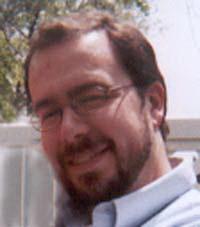- Dr. Matthew J. Van Hoose (Howard Community College)

Project
Two case studies of language ideology and practice in the U.S. South: Spanish in Northern Mississippi and Eastern North Carolina
This year Dr. Fafulas and I have made some modest but exciting gains in our understanding of Spanish-speaking populations in the U.S. South. Drawing on a corpus of more than 60 participants which includes first- and second-generation Spanish speakers in Northern Mississippi and eastern North Carolina, we are working to identify the most salient contrasts between these Southern variants of Spanish and those of larger and well-established population centers that have received more attention to date in the literature. In this way, our study will expand understandings of the linguistic, social, and cultural dimensions of the U.S. Spanish macro-dialect. Our analysis of migration patterns, language ideologies, and linguistic features of Spanish speakers in Mississippi and North Carolina also provides a laboratory of language variation and change in real time for scholars working on issues of bilingualism, education, and anthropology (to name a few) in the U.S. South.
This project connects two areas of longstanding interest for me. As a North Carolina native and undergraduate student at the University of North Carolina at Chapel Hill, I developed a keen interest in questions of race and ethnicity in the U.S. South, particularly as they pertain to the region’s growing Latinx population. In subsequent doctoral training and research in Social and Linguistic Anthropology, I explored how dialectal variation shapes the reception and social indexicalities of a set of transnational popular music genres in Uruguay. Our current project on Mississippi and North Carolina draws together those two sets of interests and is yielding new insights into the lived experiences of Spanish speakers in the U.S. South as well the social and cultural factors that shape and valorize dialectal variation and language shift.
- Dr. Kirk St. Amant (Louisiana Tech University )
Affiliated Faculty in International/Intercultural Medical and Health Communication
Kirk St.Amant is a Professor and the Eunice C. Williamson Endowed Chair of Technical Communication at Louisiana Tech University (USA) and is a Research Faculty member with Tech’s Center for Biomedical Engineering and Rehabilitation Science (CBERS) and is on the steering committee for Tech’s Visual Integration of Science Through Art (VISTA) program. He is also an Adjunct Professor of International Health and Medical Communication with the University of Limerick (Ireland), a Guest Professor of Usability and Design with Southeast University (China), and a Research Fellow and an Affiliated Faculty Member with the University of Strasbourg (France). Kirk’s academic and consulting work focuses on
— Health and medical communication
— Usability and user experience design
— International and intercultural communication
— Online education and training with a focus on instructional design
He also researches international virtual workplaces, online aspects of public health communication/health literacy, international outsourcing/offshoring, and the effects of globalization on online education.
Kirk has previously worked on international projects for companies such as Medtronic, VERITAS Software, the Braun Corporation, and Unisys. He has also worked on international projects for non-profit organizations including the Humanitarian Demining Information Center (HDIC) and the Consortium for the Enhancement of Ukrainian Management Education (CEUME). Additionally, Kirk has taught online, on-site, and hybrid courses for universities in Belize, China, Denmark, Finland, France, Ireland, Qatar, Ukraine, and the United States.
Kirk is a senior member and a Fellow of the Society for Technical Communication (STC) and a past Vice-Chair of the Association for Computing Machinery (ACM) Special Interest Group on Design of Communication (SIGDOC). He is the former editor of the journals Communication Design Quarterly (ACM SIGDOC) and Programmatic Perspectives (Council for Programs in Technical and Scientific Communication) and is a past president of the Council for Programs in Technical and Scientific Communication (CPTSC) and a former member of the IEEE Professional Communication Society (IEEE PCS)’s Administrative Committee.
